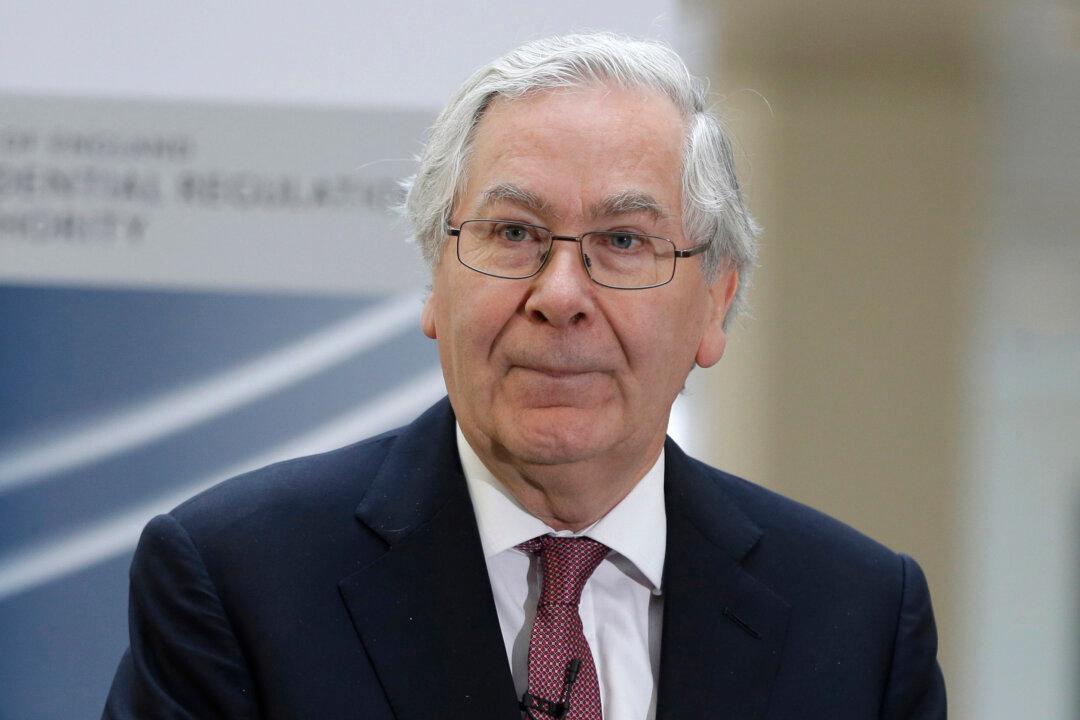LONDON—The European single currency is a serious problem for Britain whether or not the country leaves the European Union, a former governor of the Bank of England said Sunday.
Mervyn King said that even though Britain does not use the euro, “we are influenced and affected by what goes on in the euro area.” He says the euro has been economically “a, if not disaster, very serious problem.”
The euro has been economically 'a, if not disaster, very serious problem.'
, Bank of England





